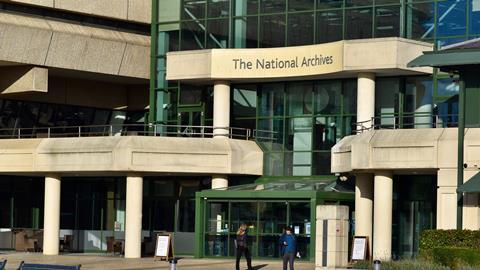A new official route for the online publication of court judgments marks 'a vital step towards better transparency' in the justice system, the government said today. As the Gazette revealed last year, the new service from the National Archives, called Find Case Law, presents judgments formatted to ease analysis by computer. For the first time, judgments are published under a clear copyright licence permitting such use.
An incomplete 'alpha' version of the system goes live today. 'We understand this is a service we need to develop and improve, particularly in terms of coverage,' the National Archives' digital director, John Sheridan, told the Gazette. 'We want feedback.'

The launch of the service coincides with the ending of the Ministry of Justice's contract with the 20-year-old British and Irish Legal Information Institute (BAILII). In a statement, BAILII said it 'has been glad to assist The National Archives in launching their new service for judgments from England and Wales' and will continue its own mission 'to provide free access to a wide range of legal materials, including judgments from England and Wales as well as other jurisdictions - Scotland, Northern Ireland, the Republic of Ireland and European courts, and the Commonwealth'.
The National Archives claims that Find Case Law has several advantages over previous ad-hoc mechanisms for distributing judgments. Judgments are held not as documents but as live data, meaning that details such as parties' names can be redacted when required. Meanwhile, from today, all England and Wales courts and tribunals decisions will be sent to the archives through its Transfer Digital Records service for public bodies. 'This gives us a chain of custody rather than email chaos,' Sheridan said.
Meanwhile, judgments will be available freely for republication under a new copyright regime the Open Justice Licence. This marks a move 'from a somewhat ambiguous situation to clarity', Sheridan said. It differs from the widely used Open Government Licence in applying only to the current version of a judgment - if a judgment is amended or unpublished in the interest of the administration of justice, the licence falls away.
The licensing terms also address the vexed question of bulk processing, including to train machine-learning systems for predicting case outcomes. Judgments will be freely available for computational analysis subject to a 'transactional licence' which must be applied for, Sheridan said. This will automatically be granted for previously approved purposes. For new uses, the archives will in turn check with the Ministry of Justice that the processing is compatible with the 'proper administration of justice'.
Sheridan stressed that organisations wishing to process judgment data will need to check the data protection implications. 'Our own legal basis is under the Public Records Act, but re-users are recipients and need to establish their own legal basis.'
Sheridan conceded that the alpha version of Find Case Law still lacks much important material - in particular an archive of important historic judgments which will be uploaded over the next year. The launch version, he said, 'Gives a sense of what the future will hold. It will be a significant improvement not just for public access but for sourcing material for the future and for re-use.’
In a statement this morning, the Ministry of Justice said that in the coming months and years National Archives 'will work with the Ministry of Justice and the Judiciary to expand coverage of what is published and made accessible to the public, including judgments from the lower courts'.
James Cartlidge MP, justice minister, said the launch was 'a vital step towards better transparency'. 'The first official government record of judgments is a modern one-stop shop that will benefit everyone, from lawyers and judges to academics, journalists and members of the public,' he said.
































17 Readers' comments